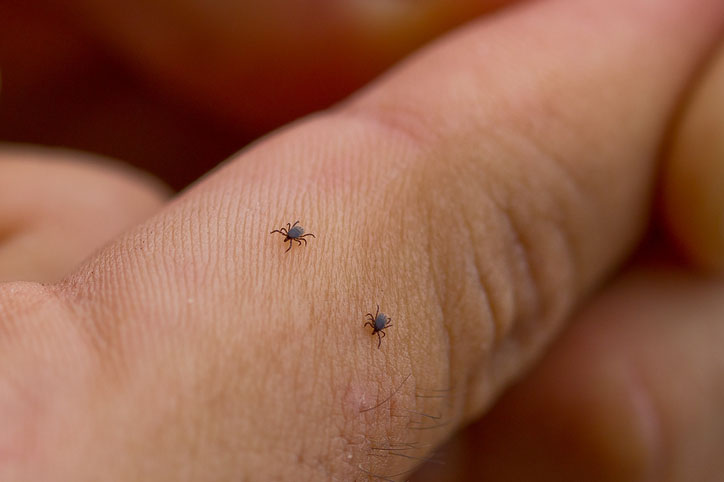Disorders of the Pancreas in Cats
- Hormonal Disorders of Cats
- Introduction to Hormonal Disorders of Cats
- Disorders of the Adrenal Glands in Cats
- Disorders of the Pancreas in Cats
- Disorders of the Parathyroid Glands and of Calcium Metabolism in Cats
- Disorders of the Pituitary Gland in Cats
- Disorders of the Thyroid Gland in Cats
Also see professional content regarding the pancreas.
The pancreas is composed of several types of cells that have distinct functions involved in the production of hormones and digestive enzymes. The exocrine pancreas produces enzymes that are essential for the digestion of complex dietary components such as proteins, triglycerides, and complex carbohydrates. The exocrine pancreas also secretes large amounts of bicarbonate, which buffers stomach acid. Disorders of the exocrine pancreas are discussed in the chapter on digestive disorders (see Disorders of the Pancreas in Cats), because they relate to digestion. The endocrine pancreas produces the hormones insulin and glucagon, which regulate blood sugar levels. The functions and disorders of the endocrine pancreas are discussed in this section.
The islets of Langerhans in the pancreas consist of 3 different types of cells, each of which produces a different hormone. Most of the cells, which are called beta cells, produce insulin. Insulin affects, either directly or indirectly, the function of every organ in the body, particularly the liver, fat cells, and muscle. In general, insulin increases the transfer of glucose and other compounds into body cells. It also decreases the rate of fat, protein, and carbohydrate breakdown.
The other 2 cell types in the islets of Langerhans produce the hormones glucagon and somatostatin. When blood glucose levels drop, glucagon is released. Glucagon helps convert stored carbohydrates into glucose so they can be used as energy.
Insulin and glucagon work together to keep the concentration of glucose in the blood and other body fluids within a relatively narrow range. Glucagon controls glucose release from the liver, and insulin controls glucose transport into numerous body tissues.
Diabetes Mellitus
Diabetes mellitus (often called simply diabetes) is a chronic disorder of carbohydrate metabolism caused by either a deficiency of insulin or a resistance to insulin. Middle-aged cats are affected most commonly. Diabetes mellitus occurs in all feline breeds equally and in both males and females.
A number of mechanisms are responsible for decreased insulin production and secretion, but usually they involve destruction of islet cells. In many cats with diabetes, a protein called amyloid collects in and damages the islet cells. Obesity increases the risk of insulin resistance in both cats and dogs.
Diabetes can often develop gradually, and the signs may not be noticed at first. Common signs include increased thirst and urination, along with increased appetite and weight loss. Diabetic animals often develop chronic or recurrent infections. An enlarged liver is common.
A diagnosis of diabetes mellitus is based on finding high levels of sugar in the blood and urine after a period of fasting. In cats, the blood sugar level commonly increases under stress, such as drawing a blood sample, and multiple evaluations may be needed to confirm the diagnosis.
Your understanding of the disease and daily care of your pet are critical to successfully managing diabetes. Treatment involves a combination of weight loss, diet, insulin injections, and possibly oral medications. Usually, animals are hospitalized for 1 or 2 days, and multiple blood samples are taken to measure the blood sugar level throughout the day. This information is used to determine the amount and timing of your pet’s meals, and the dosage and timing of insulin injections. After this initial stabilization, your veterinarian will provide appropriate instructions on managing this regimen at home. Periodic reevaluation is necessary to ensure that the disease is being controlled; these evaluations may lead to changes in treatment over time.
Functional Islet Cell Tumors (Insulinomas)
Tumors in the islet cells of the pancreas often produce and secrete the hormones normally secreted by the gland. The most common pancreatic islet tumor affects the insulin-secreting beta cells and is called an insulinoma. Insulinomas are not common in cats. (For a more detailed discussion of Functional Islet Cell Tumors, see Disorders of the Pancreas in Dogs : Functional Islet Cell Tumors (Insulinomas).)
Also see professional content regarding the pancreas.
- Hormonal Disorders of Cats
- Introduction to Hormonal Disorders of Cats
- Disorders of the Adrenal Glands in Cats
- Disorders of the Pancreas in Cats
- Disorders of the Parathyroid Glands and of Calcium Metabolism in Cats
- Disorders of the Pituitary Gland in Cats
- Disorders of the Thyroid Gland in Cats





